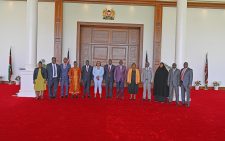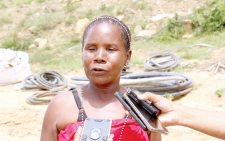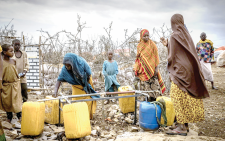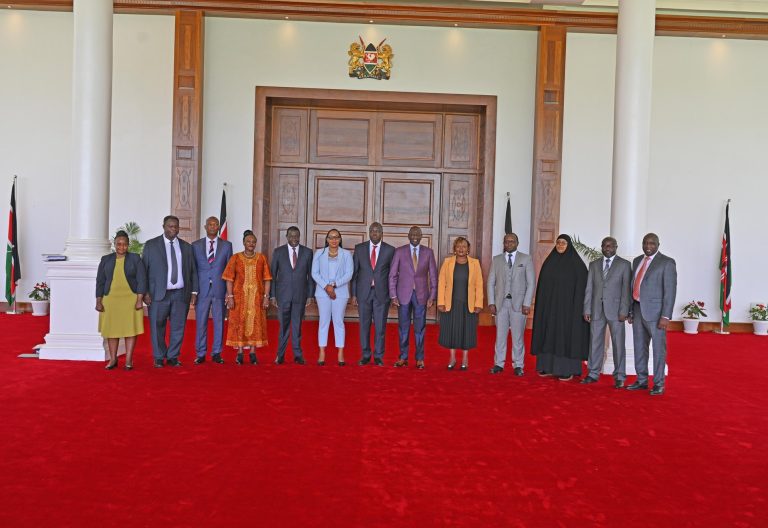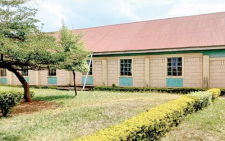Agencies warn of looming hunger amid rain shortage
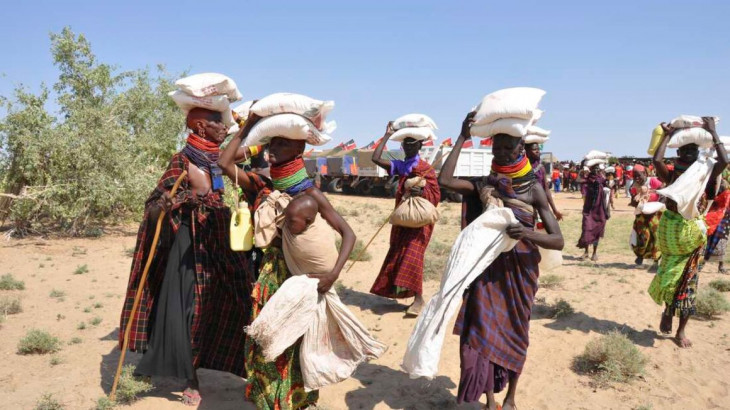
Kenya faces a hunger crisis with a humanitarian agency—Oxfam—warning of dire consequences should rainfall continue to delay coupled with the steep rise in basic commodity prices.
Worst is feared as the government and leaders commit much of efforts to political campaigns ahead of the August 9 General Election. State Department for Social Protection, Senior Citizens Affairs, and Special Programmes PS Nelson Marwa early this week confirmed the government allayed fears of the situation worsening. He said the government has released Sh450 million for a second phase programme to mitigate drought in the 23 Arid and Semi-Arid Lands counties starting next week.
Marwa said despite the challenges faced while delivering the emerging cash transfer to mitigate drought, the government has also distributed physical foodstuff as an emergency intervention.
“I can assure you no Kenyan has died of hunger. The coordination has been very successful with the national government partnering with devolved units to address the drought issue,” said Marwa.
In Northern parts of the country, farmers are counting losses after their livestock died and vegetation dried up. As the situation continues to escalate, it is feared that community livelihoods will equally collapse, thus contribute to an economic catastrophe.
Drought situation is further expected to affect school programmes and other social activities in the region.
Despite the government’s assurance, global humanitarian groups are warning of a serious crisis likely to arise in coming months and especially if the March-May long rains continue delaying.
Oxfam International, a UK-based humanitarian agency, warns that Kenyans are among 28 million people across East Africa facing severe hunger following the delay of March rains.
Unfolding crisis
Gabriela Bucher, the Oxfam Executive Director, explained that with the unfolding crisis in Ukraine taking their attention, there is a real danger that the international community will not respond adequately to the escalating hunger crisis in East Africa until it is too late.
Bucher observed that Kenya has suffered a 70 per cent drop in crop production and has declared a national disaster with 3.1 million people in acute hunger, now in need of aid. Warning that nearly half of all households in Kenya have to borrow food or buy it on credit. “East Africa faces a profoundly alarming hunger crisis. Areas of Ethiopia, Kenya, Somalia, and South Sudan and beyond are experiencing an unfolding full-scale catastrophe. Even if the rains do arrive this month, full recovery will be near impossible unless urgent action is taken today,” said Bucher.
During the first quarter of 2022, humanitarian agencies noted that over 13 million people from across Ethiopia, Kenya and Somalia are currently displaced in search of water and pasture. Jilo Roba, the Coordinator at the Department for Children’s Services in Kenya, one of Oxfam’s partners, said; “There is a family I visited two days ago, they married off their young daughter. The father was sick so he borrowed money to go to hospital and, when he could not repay it, they had to let their daughter go.”
Cash assistance
Diyaara Ibrahim Gulie, from Wajir county, who has received food and cash assistance via Oxfam says: “We now have to skip meals and resort to one meal a day. And at times we have to prioritise the children and starve grown-ups in order to sustain what little food we have.”
Oxfam, together with local partners, is redoubling its support for those impacted by the hunger crisis, aiming to reach over 1.5 million people most in need with lifesaving water, cash, shelter and sanitation facilities. Oxfam will help people to rebuild their lives from these climatic shocks.
“East Africa cannot wait. The hunger crisis, fuelled by changes in our climate and Covid-19, is worsening by the day. Oxfam is calling on all donors to urgently fill the UN humanitarian appeal funding gap, and to get funds as quickly as possible to local humanitarian organisations. The governments and warring parties in conflict zones need to ensure humanitarian agencies like Oxfam can safely reach the most vulnerable people,” said Bucher.
Marwa revealed that other areas affected by the severe drought include Kieni in Nyeri and Nyatike in Nyanza region while in Coast, Taita Taveta is grappling with the drought.
